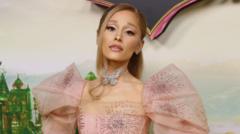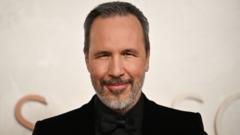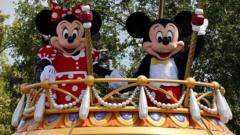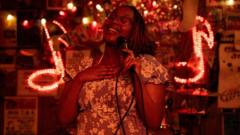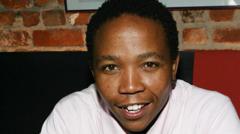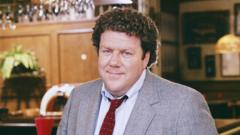As the papal conclave approaches on May 7, the film Conclave offers insights into the intricate dynamics of electing a new pope. Delving into themes of political maneuvering, isolation, and the profound human elements involved, the film serves as a captivating exploration of one of the church's most secretive rituals.
Inside the Conclave: The Secrets of Papal Elections Revealed
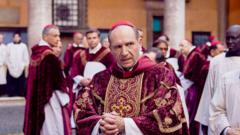
Inside the Conclave: The Secrets of Papal Elections Revealed
The film Conclave explores the complexities of papal elections, shedding light on the cloistered process behind selecting the next leader of the Roman Catholic Church.
The film *Conclave*, a recent box office success and Oscar winner, provides a compelling look into the papal electoral process that unfolds behind closed doors at the Vatican. The narrative centers on an election where no clear frontrunner exists, allowing audiences to glimpse the rarefied atmosphere of judicial decision-making within the Roman Catholic Church. Beginning on May 7, 134 cardinals will convene to select a successor to Pope Francis, a process that remains shrouded in secrecy until the signal of white smoke from the Sistine Chapel chimney indicates a new leader has been chosen.
Adapted from Robert Harris's bestselling novel, *Conclave* portrays the cardinal-electors in isolation, besieged by the weight of their decision. They are cut off from outside communication—a historical practice intended to guard against external influences on their deliberations. As Professor Stephen Bullivant from St Mary's University notes, while there are practical limitations to this isolation (they still require food), the tradition reflects a centuries-old commitment to deep contemplation.
The film captures the psychological pressure of this conclave atmosphere, described by Professor Anna Rowlands of the University of Durham as one of profound introspection. "The sense of responsibility is overwhelming for those locked away in conclave," she explains, indicating that the deliberations happen far from the public eye and the scrutiny of modern society.
In the film, intrigue runs high as the cardinal-electors engage in politics, employing strategies and tactical maneuvers to sway votes. Nick Emerson, the film's editor, remarked on the politically charged environment depicted onscreen, which echoes the likely reality in the actual conclave, where conflicts of interest and different ideologies will inevitably surface. Historical precedents suggest that prior to the official voting phase, there is often extensive behind-the-scenes politicking among the cardinals.
One notable aspect of *Conclave* is its portrayal of an unexpected choice—an unknown cardinal thrust into the election chaos. While such an occurrence may be dramatic in film, Professor Rowlands points out that the real-life election cannot feature anyone not previously named a cardinal by a past pope. Nevertheless, the imminent electoral event may be particularly unpredictable, as about 80% of the cardinals qualified to vote were appointed by Pope Francis over the past 12 years, contributing to their diverse political allegiances.
Director Edward Berger emphasizes the human aspect of the conclave, showcasing the cardinals as individuals with personal struggles and ambitions. The film aims to humanize these figures, emphasizing that they grapple with faults and desires similar to anyone else, reflecting the multifaceted nature of ambition and spirituality within this solemn undertaking.
Overall, *Conclave* serves as a striking lens into the hallowed yet often human processes of selecting a pope, blending elements of politics, spirituality, and the intricacies of human nature amidst the backdrop of a sacred ritual.



